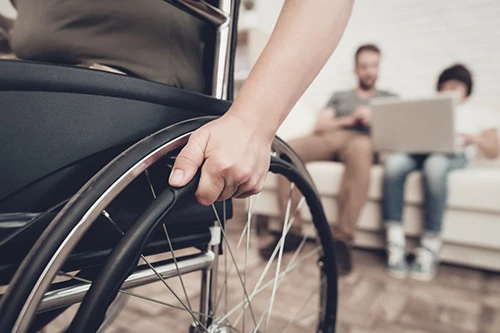Prescription drugs are prevalent in the U.S., with Americans taking more drugs than ever. According to a HealthDay News survey published on August 3, 2017, 55 percent of Americans regularly took prescription medicine, with four being the average amount of drugs taken. There are many people outside of those taking prescription drugs who take over-the-counter medications, vitamins, and other supplements (such as dietary supplements).
However, many of these drugs may have more negative benefits than positive. Most prescription medicines have general and side effects – including irritability, dry mouth, dizziness, insomnia, and drowsiness – that may impede everyday life, with driving being one of the most common activities to occur daily.
In fact, driving under the influence can apply to prescription drugs, not just illegal drugs and alcohol, because of the side effects and general effect that can occur when taking prescription drugs. You may be taking a tranquilizing drug, a sleep aid with residual effect, or antidepressants that may cause drowsiness. None of those are safe to use on the road, and they can net you a warranted DUI charge.
According to AAA back in 2005, prescription drugs – mostly benzodiazepines and opiates – are the most commonly found substances in drugged drivers involved in fatal crashes, at a whopping 46.5 percent. The number has increased steadily since then.
You can learn more about these general side effects, sentencing information, and what you can do to avoid a prescription-based DUI below.
What drugs can trigger a DUI?
You may be unsure what drugs can impair your ability to drive, but the categories of drugs below have general effects to keep in mind:
Antidepressants: There are antidepressants known to sedate – such as trazodone – which can cause effects like alcohol inebriation.
Antihistamines: Most of these drugs are known to slow down your reaction time.
Hydrocodone: A pain reliever, which is found in Vicodin and other similar drugs, can negatively affect your driving, as its effects can be equated to opiates.
Sleep aids: While it’s obvious to avoid driving after taking these particular medications, what people don’t realize are the pills’ residual effects that occur in the morning. You may continue to feel drowsy and unable to focus after waking, which can hinder your driving.
Valium: Surprisingly, just 10mg of this drug can lead to a blood-alcohol concentration of 0.10 percent, which above the legal maximum amount of 0.08 percent.
Drug Convictions and Sentencing
A Floridian drugged motorist can be convicted of a prescription drug DUI if they are under the influence of controlled substances (OxyContin, Vicodin, stimulants, etc.) and your mental and/or physical abilities are impaired. You can even be convicted if you’re not driving, as you need to have the ability to operate the vehicle. If convicted, you can face the following:
First offense: Between $500 and $1000 in fines, minimum of 50 hours community service, suspension of license for up to one year, and up to six months of jail time.
Second offense: If within five years of a previous DUI, ten days to none months of jail time, fines between $1000 and $2000, suspension of license for at least five years.
Third offense: If within ten years of one of the two previous DUIs, between 30 days in jail and five years in prison, between $2000 and $5000 in fines, and losing driver’s license for a minimum of ten years.
What can you do to avoid a prescription drug-related DUI?
Here’s what you can do to ensure you will not be slapped with a fine and potential jail time:
Check your medication’s side effects and talk to your doctor.
Be sure to check the label on your prescription drug for side effects or research the drug online for more information. Furthermore, if there are negative side effects that will interfere with your daily activities, discuss with your doctor about how you can adjust or change your medication. If you’re on new medication, ask your doctor if you should drive. Do not be afraid to ask questions.
Take your medication when they least affect you.
If your medication causes drowsiness or dizziness, take them before bedtime, not in the morning. If your sleep aid is going to last a while, try to take your medication at an earlier time and hit the hay a little early.
If medication side effects are expected to diminish, ask for help.
Need something from the grocery store but incredibly dizzy? Can’t work from home? Have a friend or family member help you out! Ask them to pick up what you need from the store or have them drive you to work. Do not risk driving yourself to another destination.
Illegal drugs and alcohol aren’t the only substances that will disrupt driving and cause accidents. Though many people don’t think about it, prescription drugs can be just as dangerous, to the point you can land yourself a DUI if you drive after taking your prescribed medication.

